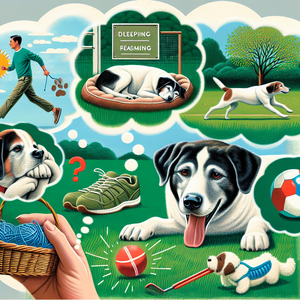Khaite's Influence on Sustainable Fashion

Khaite’s commitment to sustainability begins with a foundational focus on the materials used in production. Recognizing the environmental implications of fabric sourcing, Khaite prioritizes high-quality, sustainable materials that promise longevity and reduced ecological impact. The brand has made significant strides in incorporating organic cotton and recycled fibers into its collections. Organic cotton is crucial as its cultivation involves fewer pesticides and resources, leading to healthier ecosystems. By opting for recycled materials, Khaite not only minimizes waste but also reduces the demand for virgin resources, aligning itself with the circular economy concept. For instance, Khaite's use of recycled polyester in outerwear pieces exemplifies its dedication to sustainable sourcing and innovation in textile manufacturing.
Reducing Waste in Production
The issue of waste in the fashion industry is pervasive, with significant amounts generated during production cycles. Khaite tackles this challenge head-on by adopting innovative design techniques that emphasize efficiency and sustainability. One of the brand's key strategies is its made-to-order model, which limits overproduction and allows for customization based on consumer demand. This approach ensures that each item produced serves a purpose, reducing excess inventory and waste. Additionally, Khaite embraces the "slow fashion" philosophy by creating timeless pieces that transcend fleeting trends. This focus on quality over quantity encourages consumers to view their garments as long-term investments rather than throwaway items. For example, Khaite's signature cashmere sweaters and tailored outerwear remain relevant season after season, appealing to consumers who prioritize sustainability and longevity in their fashion choices.
Ethical Sourcing and Fair Labor Practices
Khaite's dedication to sustainability extends to its sourcing practices. The brand is committed to ensuring that all materials used in its collections are obtained responsibly. Khaite carefully selects suppliers who adhere to fair labor practices, providing safe working conditions and fair wages. By fostering relationships with artisans and manufacturers who share these ethical standards, Khaite supports communities and promotes social responsibility. In interviews with Khaite’s designers, many express pride in collaborating with skilled artisans, which enhances the quality of their products. This collaboration not only elevates craftsmanship but also empowers artisans by giving them a platform to showcase their talents. Khaite's commitment to ethical labor practices is integral to its overall sustainability mission, reinforcing the idea that luxury can be both beautiful and responsible.
Consumer Education and Awareness
Khaite recognizes that sustainability is not solely about production practices; it also involves educating consumers on the importance of making conscious choices. The brand actively engages with its audience through social media campaigns and events that promote sustainable fashion principles. By fostering awareness, Khaite encourages consumers to consider the origins of their clothing and the broader implications of their purchasing decisions. Khaite’s website features informative content about the materials used in its collections, emphasizing sustainable sourcing practices. This transparency helps consumers make informed choices and fosters a deeper connection between the brand and its clientele. By highlighting the stories behind its products, Khaite empowers consumers to participate in the sustainable fashion movement actively.
Khaite's Products and Services
Khaite's product range includes a variety of high-end apparel, footwear, and accessories. The brand is well-known for its luxurious knitwear, tailored blazers, and contemporary dresses, each designed with a focus on quality and sustainability. Khaite also offers a selection of footwear, including chic boots and sandals, crafted with the same attention to ethical sourcing and durability. In addition to its ready-to-wear line, Khaite provides personalized shopping experiences that cater to individual customer preferences, further aligning with its sustainable ethos. The brand's commitment to quality and craftsmanship ensures that each piece is designed to last, reducing the need for frequent replacements.
Khaite stands at the forefront of the sustainable fashion movement, demonstrating that luxury and environmental responsibility can coexist harmoniously. Through its commitment to ethical sourcing, waste reduction, and consumer education, Khaite is redefining the luxury fashion narrative while paving the way for a more sustainable future. As consumers increasingly seek brands that align with their values, Khaite serves as a powerful example of how fashion can be both beautiful and responsible. The brand's influence on sustainable fashion will undoubtedly inspire others to follow suit, creating a ripple effect that promotes a more conscious approach to fashion for years to come. In this ever-evolving landscape, Khaite not only champions sustainability but also reinforces the notion that the future of fashion must prioritize both people and the planet.
Sustainable Fashion Designer
Khaite, Stella McCartney, Reformation
Core Responsibilities
Develop collections using eco-friendly materials, focusing on reduced environmental impact.
Collaborate with suppliers and artisans to ensure ethical sourcing and fair labor practices.
Create innovative designs that embody the principles of slow fashion, emphasizing longevity over trends.
Required Skills
Proficiency in sustainable textile knowledge and eco-friendly design techniques.
Strong understanding of ethical sourcing and labor practices in the fashion industry.
Experience with CAD software for design and prototyping.
Ethical Sourcing Manager
Patagonia, Eileen Fisher, Khaite
Core Responsibilities
Identify and evaluate suppliers to ensure compliance with ethical labor practices and sustainability standards.
Develop and maintain relationships with suppliers to promote transparency and accountability.
Conduct audits and assessments of sourcing practices to mitigate risks and enhance sustainability initiatives.
Required Skills
Knowledge of global supply chains and ethical sourcing regulations.
Strong negotiation and communication skills to collaborate effectively with diverse stakeholders.
Experience in sustainability reporting and impact assessment.
Sustainable Fashion Marketing Specialist
Khaite, Everlane, Allbirds
Core Responsibilities
Design and implement marketing campaigns that promote sustainable products and educate consumers on eco-friendly practices.
Collaborate with designers and product teams to highlight the sustainability features of collections.
Monitor and analyze consumer engagement and feedback to refine marketing strategies.
Required Skills
Expertise in digital marketing strategies and social media engagement, particularly in the sustainability sector.
Strong storytelling skills to convey the brand’s commitment to sustainability effectively.
Experience with analytics tools to measure the success of campaigns.
Fashion Sustainability Consultant
Consulting firms specializing in sustainability, Khaite, independent consulting
Core Responsibilities
Advise fashion brands on sustainability practices, helping them develop and implement eco-friendly strategies.
Conduct sustainability assessments and provide recommendations for reducing environmental impact.
Stay updated on industry trends and regulatory developments related to sustainability in fashion.
Required Skills
In-depth knowledge of sustainable practices in the fashion industry and environmental regulations.
Strong analytical skills to evaluate sustainability metrics and outcomes.
Excellent presentation and communication abilities to educate stakeholders.
Product Development Specialist (Sustainable Textiles)
Khaite, Nike, The North Face
Core Responsibilities
Research and source sustainable materials for new product lines, ensuring compatibility with design goals.
Collaborate with design and production teams to develop prototypes using sustainable fabrics.
Monitor production processes to ensure adherence to sustainability standards.
Required Skills
Proficiency in textile science, particularly in sustainable and recycled materials.
Experience in product lifecycle management and knowledge of manufacturing processes.
Strong project management skills to oversee development timelines and budgets.


